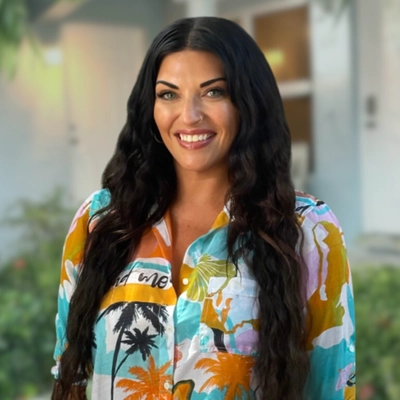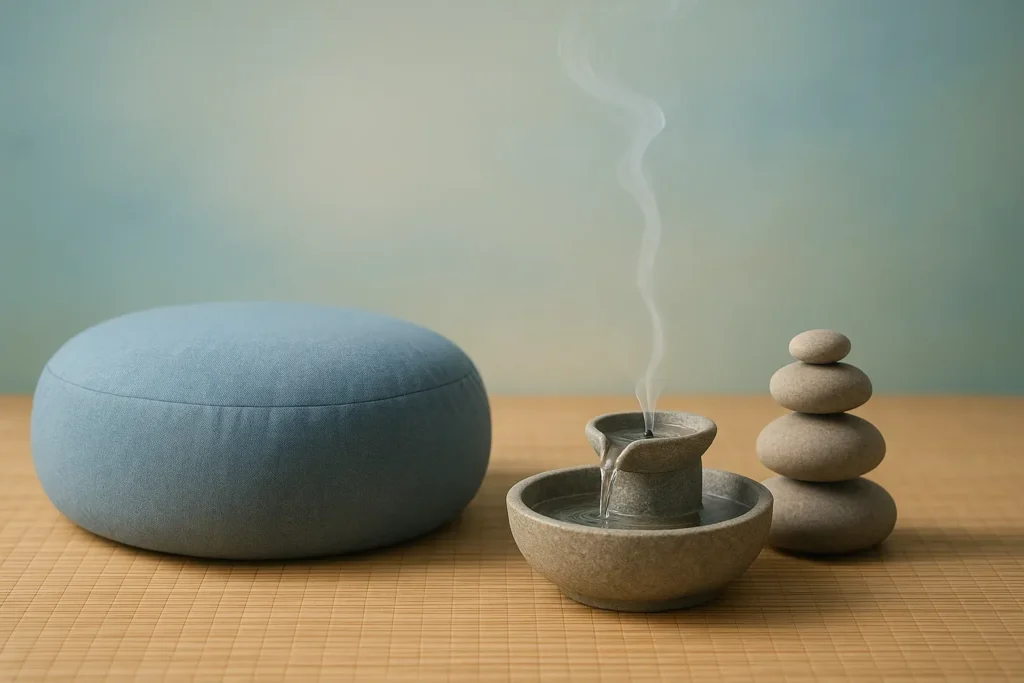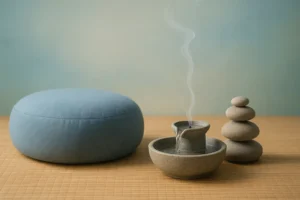Discover proven stress management techniques backed by insights from leading resilience experts. This comprehensive guide explores practical methods from sound healing to neurotherapy that help transform challenges into opportunities for growth. Learn how simple daily practices can create stability and mental clarity, even during life’s most demanding moments.
- Orienting to Safety Signals Breaks Stress
- Gratitude Practice Shifts Perspective During Challenges
- Schedule Silence for Mental Clarity
- Neurotherapy Creates Flexible Response to Adversity
- Structured Reflection Separates Control from Outcome
- Controlled Breathing with Reflective Journaling
- Embrace Controlled Chaos to Build Resilience
- Daily Routines Create Stability Amid Chaos
- Reframe Challenges as Growth Opportunities
- Solo Travel Builds Adaptability to Change
- Sound Healing Settles the Nervous System
Orienting to Safety Signals Breaks Stress
One stress management technique that has truly transformed my resilience is what’s called orienting. When I feel overwhelmed, I deliberately scan my surroundings until I spot three or four signals of safety – maybe the texture of tree bark outside my window, the comforting warmth of a coffee mug, or simply the steady rhythm of my own breathing. This practice might seem simple, but it effectively breaks the stress cycle by signaling to my nervous system that I’m not currently in danger. Through consistent practice, orienting has fundamentally changed how I handle difficult situations. Rather than spiraling into overwhelm or kicking into overdrive, I can quickly ground myself, broaden my perspective, and approach challenges with renewed creativity and steadiness. The goal isn’t to eliminate stress altogether but to train my body to recover more rapidly when it inevitably arrives.

Entrepreneur/Board Certified Health and Wellness Coach, Karen Ann Wellness
Gratitude Practice Shifts Perspective During Challenges
One stress management technique that has really helped me develop greater resilience in the face of adversity is practicing gratitude. This simple habit has made a huge difference in how I handle challenges, especially during tough times.
When I first started my business, I often found myself overwhelmed by setbacks and stress. There were days when everything seemed to go wrong… missed deadlines, difficult conversations with clients, and just the general chaos of entrepreneurship. I knew I needed a change in perspective, so I decided to start a gratitude journal.
Every evening, I began taking a few minutes to write down three things I was grateful for that day. At first, it felt a bit forced; I would jot down the usual things, like having a warm meal or a nice chat with a friend. But over time, I started noticing the smaller moments that brought me joy, like the way my houseplants thrived or a compliment from a team member.
Research supports the benefits of this practice, too. A study published in the Journal of Personality and Social Psychology found that regularly practicing gratitude can lead to improved mental health and increased resilience. It turns out that focusing on the positives can really shift our mindset.
One particular evening stands out in my memory. I had just experienced a tough meeting where I felt unheard and frustrated. Instead of letting that negativity consume me, I turned to my gratitude journal. As I wrote down my three things, I felt the weight lift. I remembered the support from my team and how far I had come in my journey. That reflection made me realize that one challenging moment didn’t define my entire experience.
This shift in perspective has strengthened my ability to bounce back from setbacks. Now, when I face adversity, I remind myself of the things I appreciate, which helps me maintain hope and resilience. It’s like having a mental toolkit that empowers me to navigate challenges with a clearer mind and a more positive outlook.
Practicing gratitude has not only improved my mental health but also shaped how I lead my team. By focusing on the positives, I can create a more supportive and uplifting work environment.
Ultimately, this practice has become a vital part of my journey, helping me grow stronger and more resilient every day.

Co-Founder | CEO, Premier Wellness Of South Florida | Supportive Living For Mental Health & Wellness
Schedule Silence for Mental Clarity
During stressful periods, I make it a point to schedule silence. I disconnect from meetings, notifications, and calls for a short window. At first, it felt counterintuitive because deadlines were pressing and work seemed urgent. But silence offered a clarity that no amount of rushing could provide. It allowed me to retreat from the constant busyness and reflect on what truly needed attention. In those quiet moments, I could sort through distractions and regain control over my priorities.
Over time, this practice strengthened my resilience because it taught me that stillness can be more productive than constant action. Each pause refreshed my perspective and sharpened my decision making. I developed the habit of slowing down under pressure instead of speeding up. These intentional quiet moments helped me recover from challenges more efficiently and approach work with renewed calm and purpose.

Founder, eLearning Industry Inc
Neurotherapy Creates Flexible Response to Adversity
One of the most powerful resilience tools in my life has been neurotherapy. That includes both neurofeedback (where the brain learns from its own activity) and neurostimulation (where we nudge the brain with gentle signals). Stress is hardest when the nervous system is rigid—locked into the same reactive patterns. Neurotherapy helps retrain those patterns, making the brain more flexible. And with that flexibility, I don’t get stuck in old loops when adversity hits. Instead of reacting automatically, I can pause, adapt, and move forward. It’s like loosening a knot that used to keep me trapped—the more flexible my nervous system, the quicker I bounce back.

Neurotherapy • Brain Mapping • Performance Optimization, Peak Mind
Structured Reflection Separates Control from Outcome
The practice that has benefited me the most is structured reflection, which to me means journaling. In my line of work, it’s easy to feel overwhelmed by the burden of every conversation and outcome during volatile correctional issues that involve high-stakes legal matters. When I devote the last part of my day to putting down on paper what happened, how I responded and what I could have done differently, I bring distance and with it perspective. It helps me identify what is within the realm of my control and what isn’t, which is really important when you’re working on issues where people are very emotional.
This habit has made me more resilient because I can deal with setbacks in a healthy manner, instead of stacking them up. For example, if a case I worked on didn’t advance as positively as I would have liked, I was also able to look back at my notes, realize what external factors were involved and reiterate to myself that my job was just to advocate well — not control every outcome. That habit of reflection has over time helped teach me to face my challenges in a steadier frame of mind, with less self-criticism.

Managing Director & Federal Prison Consultant, Zoukis Consulting Group
Controlled Breathing with Reflective Journaling
I started controlled breathing with journaling during one of the most crazy periods of my career, and it completely changed how I deal with stress. Instead of reacting impulsively, I pause, take slow deep breaths, and write down what I’m feeling – without filtering or judging it. This simple practice helps me separate emotion from logic and respond instead of react. Over time, it’s trained my mind to know that discomfort is temporary and manageable. When things go wrong, I go back to my journal and re-read past entries – it’s a reminder of how much I’ve already overcome. This habit has made me more resilient by teaching me emotional awareness and perspective. Things still happen, of course, but they no longer consume me. Breathing and writing ground me in the present, and from that calm space, I find the clarity and confidence to move forward.

Co-Founder & CEO, AIScreen Digital Signage Software
Embrace Controlled Chaos to Build Resilience
I’ve leaned on what I call “controlled chaos”—deliberately putting myself in small, uncomfortable situations on purpose. Early on, I started taking on challenges that terrified me: public talks, negotiating deals where I was the underdog, even pitching to investors I knew would probably say no.
But each time I survived, I realized my brain wasn’t going to melt; I wasn’t going to fail catastrophically. Those tiny stress rehearsals built this weird mental callus. When real disasters hit—server crashes, layoffs, or a major client bailing—I noticed I didn’t freeze.
I still panicked, sure, but the panic didn’t control me. It’s uncomfortable, but nothing teaches you grit faster than putting yourself in situations where failure is very possible, and then seeing that life keeps going.

CEO, The CEO Creative
Daily Routines Create Stability Amid Chaos
In times of stress, I turn to routine as a stabilizer. Running an organic skincare business brings constant unpredictability, from supply chain challenges to changing market trends. I rely on consistent daily habits, such as starting each morning by reviewing priorities and planning tasks. This daily structure reduces stress by giving a sense of order amid uncertainty. Over time, these habits have built resilience because I know that no matter how turbulent the day becomes, I can return to this foundation.
Consistency also helps me reset quickly when setbacks occur. It provides a framework for decision-making and encourages focus on what matters most. By embracing routine, I have learned to navigate adversity with steadiness and confidence. This balance creates space to respond thoughtfully rather than react impulsively. It has become a key tool for managing stress and sustaining performance in a demanding environment.

Founder/Owner, Rhug Wild Beauty
Reframe Challenges as Growth Opportunities
Learning to reframe challenges as opportunities for growth is a valuable stress management technique to adopt. Making the conscious decision to shift your mindset involves viewing setbacks not as failures, but as valuable lessons that build character, resilience, and adaptability. In the face of adversity, take a few moments to reflect on the skill or insight gained from the experience, which will help cultivate optimism. This mindset shift will encourage proactive problem solving and reduce negative emotions based on performance. By reflecting on what can be learned from a difficult situation, you will build confidence and increase perseverance, making it easier to recover from setbacks. The habit of reframing adversity strengthens long-term resilience.

Founder & CEO, Sereni Journeys
Solo Travel Builds Adaptability to Change
One stress management technique that has helped me build resilience is solo travel combined with mindfulness practices. Stepping away from my daily routine and putting myself in new environments, where I can experience different cultures, personalities, and foods, gives me the space to reflect, reset, and gain perspective. When I travel alone or practice mindful breathing or journaling, I remind myself that I can handle uncertainty and adapt to change.
These practices have shown me that challenges, whether in work or in life, can help me grow instead of hold me back. Every time I face something unfamiliar, I draw on the confidence I’ve built in those moments, trusting my ability to bounce back and move forward.

Localization Technical Project/Program Manager
Sound Healing Settles the Nervous System
Sound healing has really helped me manage stress. I’ll put on solfeggio frequencies, lay flat in Shavasana, and let my nervous system settle. It gives my brain a real break when pain and stress get overwhelming, and afterward I feel calmer, clearer, and able to bounce back faster.

Founder & CEO, CELESTE DU VIDE LLC











